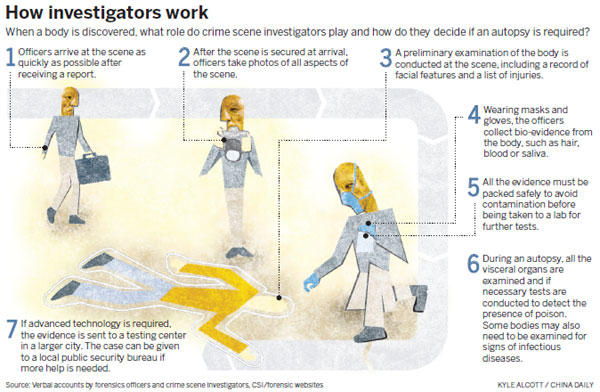Overworked officers quitting profession

Responsibility
Although the work was tough, Ji had a strong sense of responsibility, and it gave him a real feeling of achievement.
One night in 2005, he was called to a district hospital to assist physicians after the death of an 11-month-old boy.
"The doctors told me the baby choked to death after food became caught in his throat, and the parents agreed with the diagnosis," he said.
"However, after a preliminary examination, I discovered that the infant's pupils were very contracted, which made me consider the possibility of poisoning."

When a subsequent autopsy confirmed Ji's hunch, the public security body established a team to investigate the case. Eventually, it was established that an aunt had poisoned the boy's milk after a dispute with his parents.
"The incident impressed me a lot because my examination helped to solve a criminal case," Ji said. "In other words, conducting careful tests every time can reduce the possibility of a miscarriage of justice. That's the value of the work."
Wang Peng, deputy director of the Beijing Tianmu Judicial Expertise Institute, said forensics officers must focus 100 percent on every case: "It is our duty and also our responsibility to the dead."
Wang, who has worked in the field for nearly 10 years, does not think it will be possible to raise the number of forensics officers in the short term. He conceded that the work of a very small number of independent institutes is poor, saying that only about 20 institutes in the capital are capable of dealing with complicated cases.
He urged higher standards overall.
"In my view, the most urgent and important thing for such a busy and challenging job is to improve the quality of examinations and investigators and ensure the highest level of professionalism," he said.
Contact the writer at caoyin@chinadaily.com.cn


















